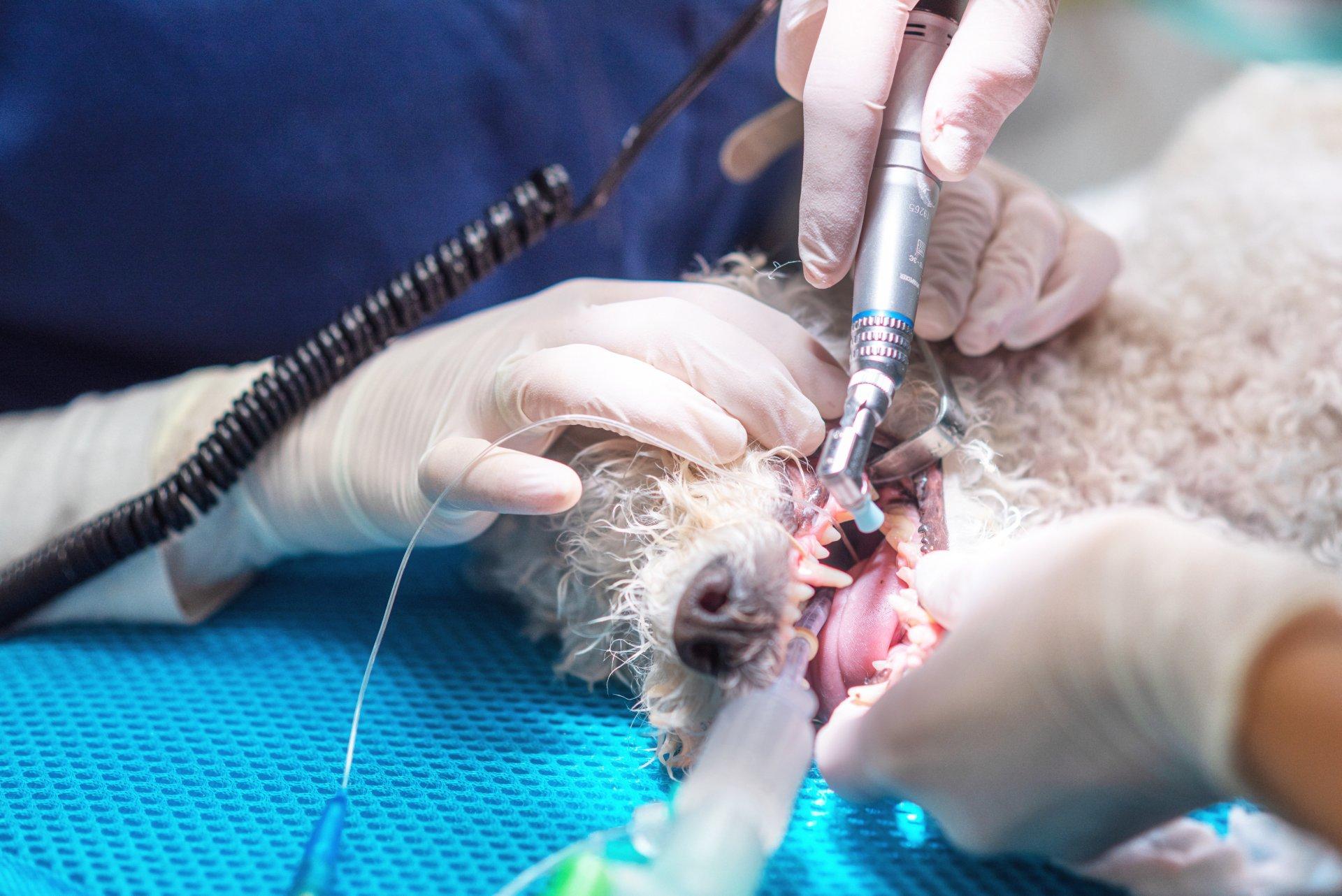Dental Care
Dental care is an important element of pet health, and our vets and nurses can advise on how to make sure your pet’s mouth is in top condition.
It is important to keep your pet’s teeth clean and we have several ways of helping you do this. Please ask one of our nursing staff if you need advice.
Modern diets don’t clean the teeth as well as your pet’s natural diet would do, and many contain sweet or sugary ingredients which promote the formation of plaque on the teeth.
It is common for plaque to become calcified causing tartar on the teeth. As this tartar increases it will create areas where food and debris can collect and rot, leading to dental disease manifesting as gum disease and eventually rotten teeth.
Over 75% of cats and dogs over the age of three now show some signs of dental disease.
As your pet develops dental disease there are many signs that you may see:
- Halitosis or bad breath
- Pain or difficulty eating so that they may chew on one side of the mouth
- Weight loss
- Red, inflamed and bleeding gums
- Blood stained saliva
- Wobbly or missing teeth
- Drooling
- Preferring soft food to biscuits
- A swelling on the face or jaws
- Pawing or rubbing at their face
If you see any of the above signs, please make an appointment to bring your pet in to see us.
Options for treating dental problems
If we can, we will recommend ways in which you can improve your pet’s dental health at home, but if this is no longer possible, we will recommend that your pet comes in for dental treatment.
We will give them a light anaesthetic, then use an air-powered descaler, similar to the ones used by human dentists, to remove all the tartar and plaque from the teeth.
The teeth are then assessed to see if they are rotten or if the ligaments holding them in have been broken down beyond repair. If so, then we may need to extract the teeth.
Once that has been done, the remaining teeth are gently polished, the mouth cleaned, and your pet is taken to recovery where they come round from their anaesthetic and are then offered some breakfast.
It always amazes us how quickly pets who have undergone dental procedures are happy to eat.
Once we are sure that they are fully round, we will ring to arrange a time for them to go home.


